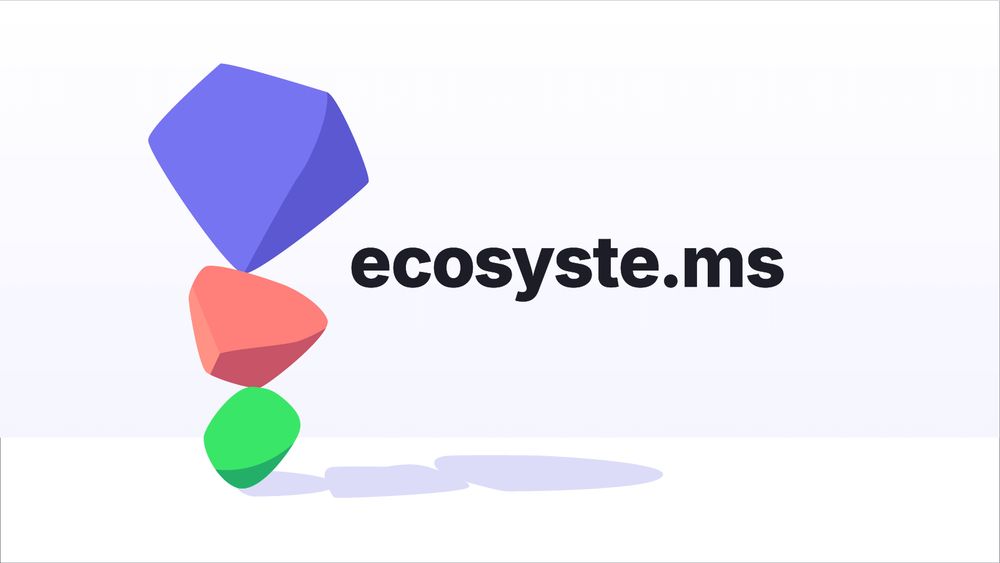[bridged from https://mastodon.social/@ecosystems on the fediverse by https://fed.brid.gy/ ]
https://blog.ecosyste.ms/2025/11/17/documenting-package-manager-data.html

https://blog.ecosyste.ms/2025/11/17/documenting-package-manager-data.html
Submission deadline: 1st December 2025 […]
Submission deadline: 1st December 2025 […]

The hope is that this will help inform and improve package managers in the future.
Please fill it out and share it: https://forms.cloud.microsoft/r/McbinF3Tnn?origin=lprLink
The hope is that this will help inform and improve package managers in the future.
Please fill it out and share it: https://forms.cloud.microsoft/r/McbinF3Tnn?origin=lprLink
https://blog.ecosyste.ms/2025/09/01/rate-limiting-the-right-way.html

https://blog.ecosyste.ms/2025/09/01/rate-limiting-the-right-way.html
That growth has pushed us to the limit, so we’re working with @OpenSourceCollective to fund the next phase and inviting others to join us […]
That growth has pushed us to the limit, so we’re working with @OpenSourceCollective to fund the next phase and inviting others to join us […]
You can now lookup information about a PURL in both text and json format, calling @ecosystems behind the scenes.
https://github.com/andrew/purl?tab=readme-ov-file#look-up-package-information

You can now lookup information about a PURL in both text and json format, calling @ecosystems behind the scenes.
https://github.com/andrew/purl?tab=readme-ov-file#look-up-package-information
Would love to hear some thoughts on how to enable it on such a massive service, is activitypub […]
Would love to hear some thoughts on how to enable it on such a massive service, is activitypub […]
Some of these modules have hundreds of millions of monthly downloads (some from substack and dominictarr), definitely low […]
Some of these modules have hundreds of millions of monthly downloads (some from substack and dominictarr), definitely low […]

Credit to @sethmlarson for the name
Credit to @sethmlarson for the name

Will be interesting to see how this develops.
ecosyste.ms is a gem that I eg. use to power the #neostandard canary and compatibility test lists

Will be interesting to see how this develops.
ecosyste.ms is a gem that I eg. use to power the #neostandard canary and compatibility test lists

